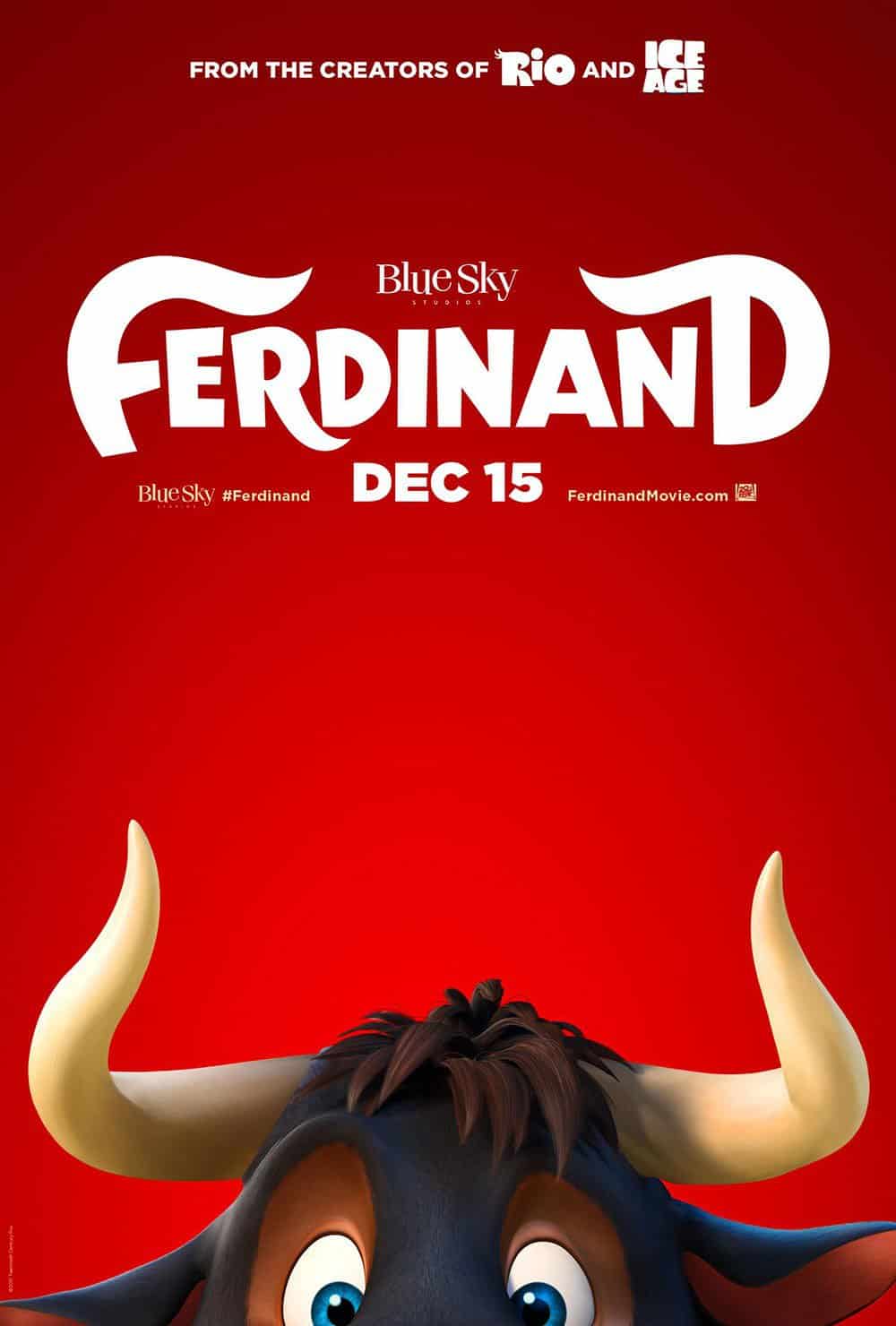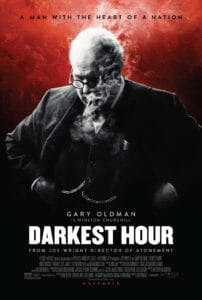
I first learned about nonviolence from a bull.
My childhood copy of Ferdinand was beautiful—the red cover, the flowers, even the lettering. I remember very clearly the way the light and dark shading of the font played together in perfect harmony in the title on the cover.
What I remember most is the picture of Ferdinand sitting, all by himself, under the cork tree. And how the story tells us that “His mother saw that he was not lonesome, and because she was an understanding mother, even though she was a cow, she let him just sit there and be happy.”
Ferdinand’s mother doesn’t appear in the new film Ferdinand, but her kindness and understanding are reimagined in the character of a little girl named Nina. Devotees of the original book will find many remembered elements present in the movie—the cork tree, Ferdinand’s height measurements as he grows, the flowers at the bullfight, and of course, the bee—but on the whole, what Ferdinand has to offer audiences is so much more.
I’ll admit I went into the movie a bit skeptical. From the trailers, I feared an hour and a half romp through size gags, (“Have you seen these hips?” Ferdinand asks) poop jokes, (“I can’t wait to show you to the rest of the guys,” Lupe the goat enthuses, “They’re going to fertilize the yard!) and a nonstop loop of a Ferdinand version of The Trashmen’s Surfin’ Bird. What I experienced, however, was a wonderful entré into a child-friendly discussion of nonviolence, with additional themes of intentional family and animal welfare running throughout.
The film’s reimagining of Ferdinand’s story starts in a bullpen, where Ferdinand, the flower-loving youngster, is bullied by his peers (the root for “bully,” as the movie points out, is of course “bull.”) It’s hard not to fall in love with Ferdinand’s big-eyed character as he looks the bully in the eyes and simply states, “I won’t fight you.” Ferdinand’s character in the movie is more intentional in his commitment to nonviolence than his counterpart in the book—rather than being a lover of flowers for whom fighting just isn’t on the radar, the film version of Ferdinand is explicit about his beliefs. He is not made to fight, and he will not fight—anyone, anywhere, at any time. Even when his life is on the line.
It’s hard not to fall in love with Ferdinand’s big-eyed character as he looks the bully in the eyes and simply states, “I won’t fight you.”
Ferdinand’s beloved cork tree grows on a flower farm in the movie, where Ferdinand arrives unexpectedly in the middle of profound loss. The human flower farmers become family for him, along with their dog Paco, who denies the affinity he soon feels for Ferdinand.
“Dogs are dogs and bulls are bulls,” Paco says, as Ferdinand lifts a trough of water with his horns to water the flowers. “That’s normal.”
“If I was a normal bull,” Ferdinand replies, “I would have never found this farm. And we wouldn’t be brothers!”
“A dog and a bull can’t be brothers!” Paco insists. “That would be weird.”
“Really?” Ferdinand asks. “Then why does your tail wag when I call you ‘brother?’”
The most intense scene in the move takes place not in the bullring, or even the bullpen, but a slaughterhouse. Known as the “chop house” among the bulls, I was unsure at first whether the movie was trying to play the scene for laughs—because I wasn’t finding it funny. When one of the bulls is sent to the chop house, though, it quickly becomes apparent that this isn’t intended to be humorous. As the camera pans from an ominous-looking, dark building set in the background right up to the chop house doors and inside, the grim machinery clanking away on the screen caused one young moviegoer in the audience with me to lean in toward a parent and ask, “Mommy, is that actually how they kill them?” An excellent moment to start a conversation on being CreatureKind.
Although Ferdinand concludes (spoiler alert!) with a happy ending, it’s clear throughout that Ferdinand’s practice of nonviolence isn’t rooted in the ends justifying the means. He isn’t refusing to fight because he thinks it’s easier or safer. On the contrary: at multiple points throughout the film, Ferdinand stares danger in the face and renews his affirmation that he was not created to be a fighter. With strong messaging around nonviolence, chosen family, and being who one was created to be, Ferdinand is not only a fun and engaging family movie, but an excellent touchpoint for family conversations afterward.
Editor’s Note: Ferdinand releases Friday, December 15th in theaters everywhere.
Elrena Evans is Editor and Content Strategist for Christians for Social Action. She holds an MFA in creative writing from Penn State, and has also worked for Christianity Today and American Bible Society. She is the author of a short story collection, This Crowded Night, and co-author of the essay collection Mama, PhD: Women Write About Motherhood and Academic Life. She enjoys spending time with her family, dancing, and making spreadsheets.


